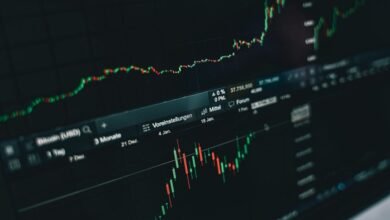Building Financial Resilience for Long-Term Growth 3880594034

Building financial resilience is crucial for long-term growth. It requires a structured understanding of financial principles and effective strategies. Individuals must prioritize budgeting, saving, and investment practices. Each aspect contributes to a foundation that can withstand economic fluctuations. However, many overlook key elements that can enhance their financial stability. Exploring these components reveals a pathway to sustainable wealth accumulation that merits further examination.
Understanding Financial Resilience
How does one define financial resilience in an increasingly volatile economic landscape?
Financial resilience encompasses the ability to withstand economic shocks and maintain stability. It is underpinned by robust financial education, enabling individuals to make informed decisions.
Additionally, effective risk management strategies play a crucial role in anticipating potential challenges, thereby fostering adaptability and ensuring long-term financial security in uncertain times.
Essential Strategies for Effective Budgeting
While many individuals recognize the importance of budgeting, the implementation of effective budgeting strategies often remains a challenge.
Employing diverse budgeting techniques, such as the zero-based budget or the 50/30/20 rule, can enhance financial awareness.
Additionally, diligent expense tracking allows individuals to identify spending patterns, facilitating informed decisions.
These strategies collectively empower individuals to attain financial freedom through disciplined fiscal management.
The Importance of Saving and Emergency Funds
Establishing a robust savings plan, particularly through the creation of an emergency fund, is critical for financial resilience.
Effective savings habits allow individuals to prepare for unforeseen circumstances, reducing reliance on credit.
Emergency planning ensures that a financial buffer exists, safeguarding against potential disruptions.
Smart Investment Practices for Sustainable Growth
Investing wisely is crucial for individuals aiming to achieve sustainable financial growth, as it enables them to build wealth over time while mitigating risks.
A diversified portfolio, encompassing various asset classes, reduces exposure to market volatility.
Additionally, ethical investing aligns financial goals with personal values, fostering responsible practices that contribute to societal well-being.
These strategies collectively enhance long-term financial resilience and independence.
Conclusion
In conclusion, building financial resilience is critical for long-term growth, as evidenced by a study revealing that individuals with emergency funds are 70% more likely to navigate financial crises without incurring debt. By implementing effective budgeting, prioritizing savings, and engaging in strategic investments, individuals can enhance their financial stability. This multifaceted approach not only fosters adaptability to economic shocks but also promotes sustainable wealth accumulation, ultimately leading to greater financial independence in an unpredictable economic landscape.




